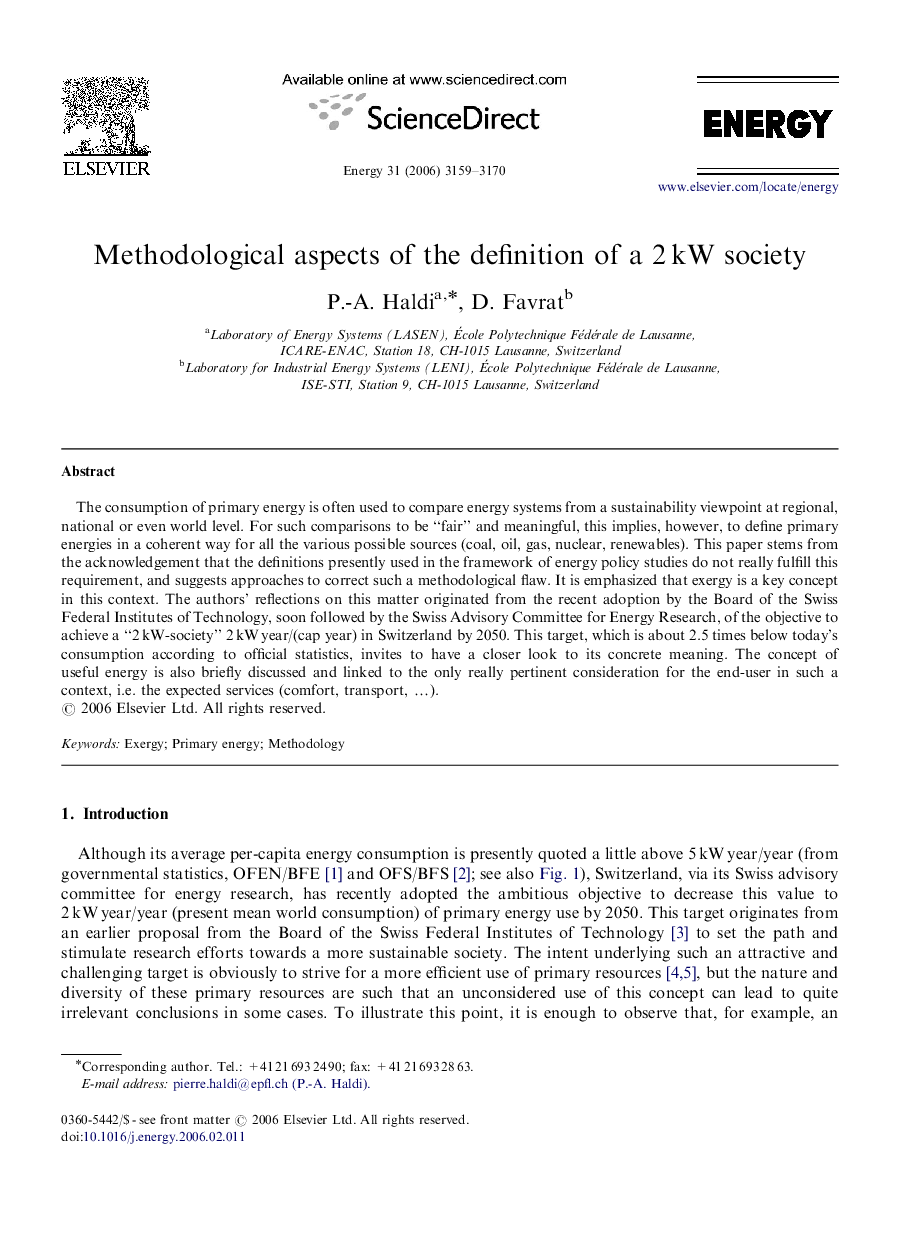| Article ID | Journal | Published Year | Pages | File Type |
|---|---|---|---|---|
| 1736091 | Energy | 2006 | 12 Pages |
The consumption of primary energy is often used to compare energy systems from a sustainability viewpoint at regional, national or even world level. For such comparisons to be “fair” and meaningful, this implies, however, to define primary energies in a coherent way for all the various possible sources (coal, oil, gas, nuclear, renewables). This paper stems from the acknowledgement that the definitions presently used in the framework of energy policy studies do not really fulfill this requirement, and suggests approaches to correct such a methodological flaw. It is emphasized that exergy is a key concept in this context. The authors’ reflections on this matter originated from the recent adoption by the Board of the Swiss Federal Institutes of Technology, soon followed by the Swiss Advisory Committee for Energy Research, of the objective to achieve a “2 kW-society” 2 kW year/(cap year) in Switzerland by 2050. This target, which is about 2.5 times below today's consumption according to official statistics, invites to have a closer look to its concrete meaning. The concept of useful energy is also briefly discussed and linked to the only really pertinent consideration for the end-user in such a context, i.e. the expected services (comfort, transport, …).
